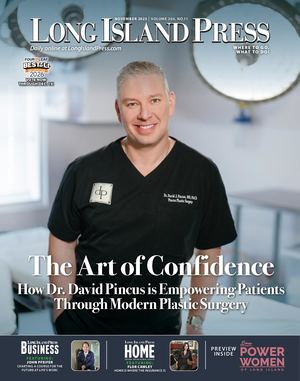Judgment in Washington
It’s been years since a Supreme Court case has had such widespread and inherent implications and consequences. The current challenge by 26 states and the National Federation of Independent Businesses to the “Patient Protection and Affordable Care Act” will be heard by the nine court justices this week.
On Monday, March 26, the highest court in the land was to preside over a dramatic three-day hearing on the constitutionality of Obamacare. The reason the court chose this case may be because there has been no consensus among the Circuit Courts or, I hope, that Chief Justice Roberts sees in this case a potential redefining, if not upheaval, of the Madisonian architecture that established the core of limited government.
The Constitution divides power between federal and state authorities. In adopting the idea of the separation of powers into three branches from Montesquieu’s Spirit of Laws, we often too little appreciate how that power was further divided between the federal and state governments. In effect, the Constitution limits this congressional authority to specific enumerated rights in Article I and denies to the federal government broad regulatory authority, which is reserved specifically for the states.
Obamacare mandates that virtually every American be compelled to buy health insurance. Those who do not comply will be subject to a punishing monetary penalty. The objective is to force younger, healthier and higher wage earners into a mandated system for the purpose of subsidizing those who need more coverage. Transfers of wealth from one class to another are hardly news in the United States. We’ve been doing it for decades. The way government would normally exercise this transfer is through its taxing power, imposing higher taxes on some to redistribute to others usually in the form of social programs or outright handouts. This is perfectly aboveboard and constitutional.
But in a weak, nearly jobless recovery, imposing new taxes is political dynamite. In order to sidestep this unpleasantness, the Obama Administration has slyly seized upon the commerce clause, whose increasing elasticity over the years is truly a thing of wonder. Initially, the Commerce Clause sought only to eradicate the interstate tariffs that prevailed under the failed Articles of Confederation. As things progressed, there is no question that it has also been utilized to defend more regulation regarding commercial and economic transactions but not individuals. If the government, it’s been said, can force you to buy health insurance, why couldn’t they force you to eat broccoli or anything else that was part of their social agenda? It’s a very slippery slope to be sliding down. To apply the Commerce Clause to Obama’s health care mandate required an Orwellian leap to square the philosophical circle. Essentially, the White House strategists are arguing the following: By compelling people to enter the health care and health insurance markets, the government has, in effect, created commerce, thereby giving the Federal Government something to regulate.
While the federal government can and does regulate broadly, there were always boundaries on how much and how far they can regulate. The Founders were very sensitive to and indeed feared centralized power, which is why they not only adopted a Bill of Rights, they also designed a federalist system to divide sovereignty. The Supreme Court itself has consistently recognized that the Constitution denies the federal government broad police powers. If the Supreme Court upholds the Obama Administration’s health care law, the dual sovereignty between the federal authority and state authority will be history and federal police power will not only encroach but eclipse individual autonomy.
Justice Anthony Kennedy, no hardline conservative, noted in the Commerce Clause case the United States v. Lopez that, “The theory that two governments accord more liberty than one requires for its realization two distinct and discernible lines of political accountability: one between the citizens and the federal government; the second between the citizens and the States.”
Arguments being made that health care is unique begs the question on why food, shelter and transportation aren’t. If we are going to live in a world where everything is under the rubric of Interstate Commerce or must be covered under the Necessary and Proper Clause, even when the measure is not based on an enumerated power, the state of American liberty suffers and the uniqueness of the American experience will be severely compromised. I hope we have not reached the point where we have become too entitlement happy to detect the poison in this pill. Ronald Reagan, in perhaps the one quote of his I cherish above all others touches on this very question:
Freedom is never more than one generation away from extinction. We didn’t pass it to our children in the bloodstream. It must be fought for, protected, and handed on for them to do the same, or one day we will spend our sunset years telling our children and our children’s children what it was once like in the United States where men were free.
This bill is inherently and monstrously unconstitutional. Indeed, it’s a blatant attack on the Constitution. The question before the justices of the Supreme Court is whether there is any limiting principle on congress, or is Article I an anachronistic staple of some far gone century that we neither know nor care about.

































